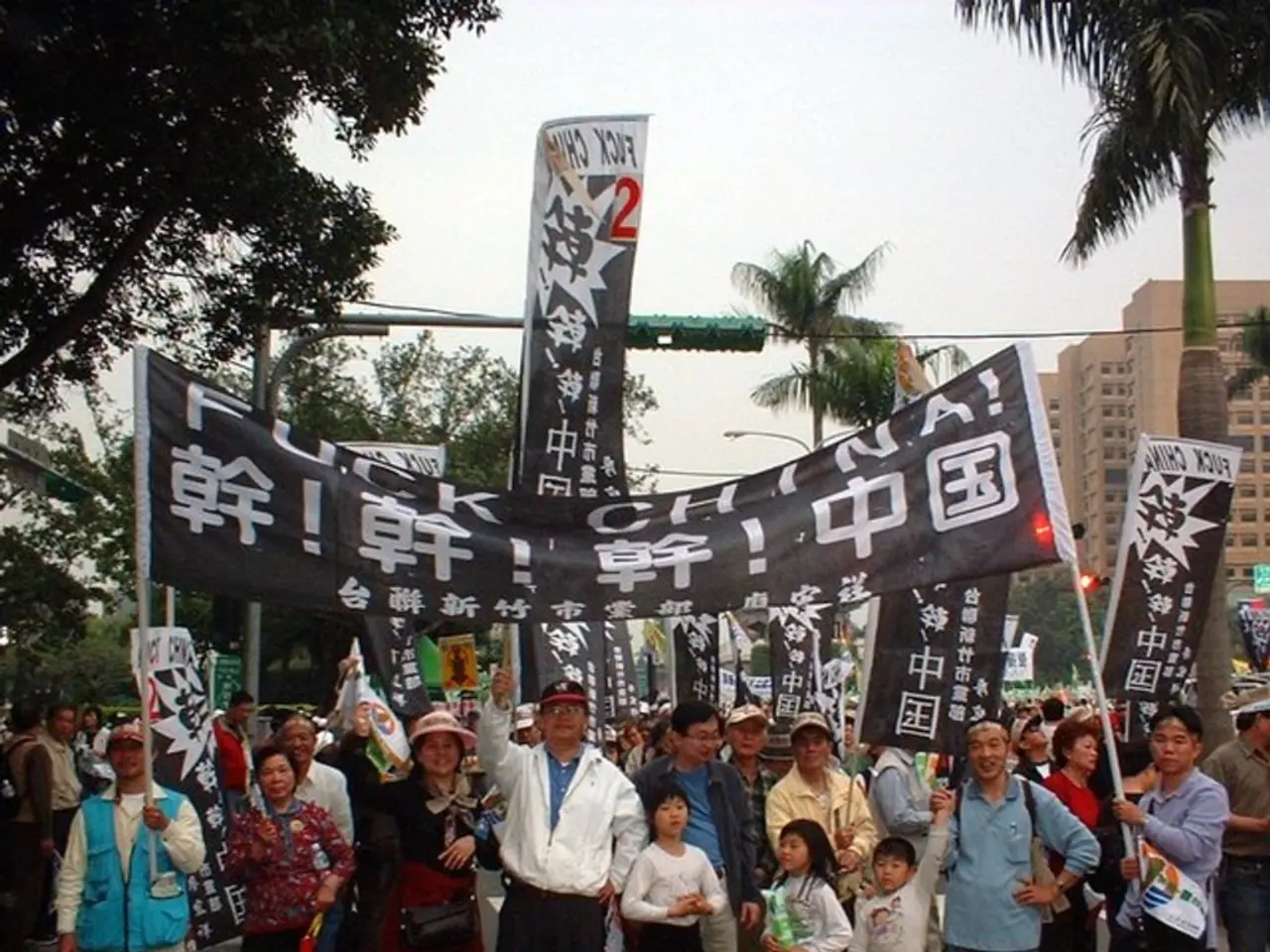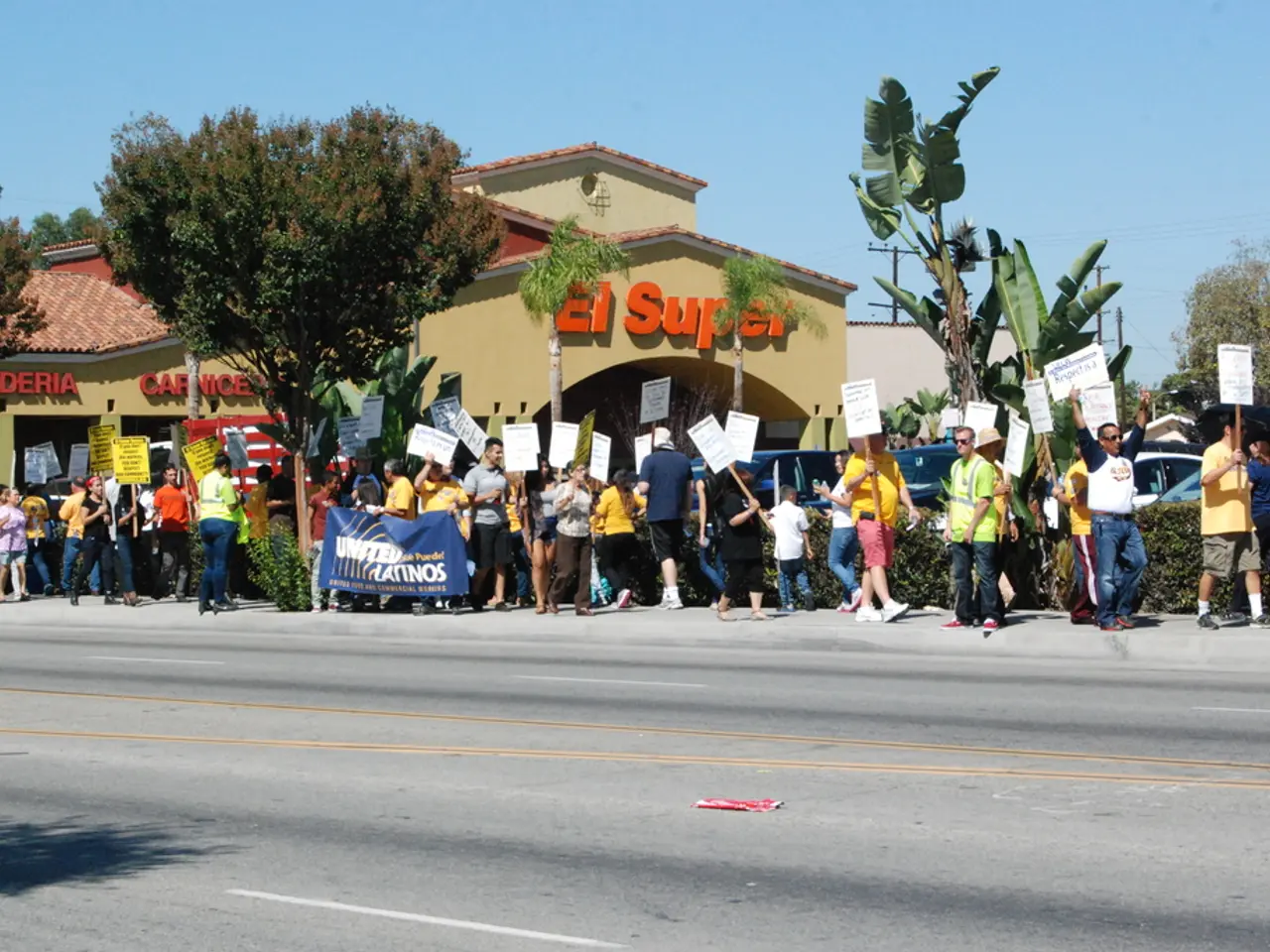Massive gathering of 100,000 individuals in Budapest, asserting their rights in open defiance against Hungary's imposed ban on the Pride event.
In the heart of Hungary, the annual Budapest Pride march has become a symbol of resilience and advocacy for LGBTQ+ rights, despite facing increasing governmental opposition and controversy. This year's event, held on June 28, 2025, marked a significant milestone as it became the largest in Hungarian history, with estimates of attendance ranging from 100,000 to as many as 200,000 participants.
The march took place under the shadow of a formal government ban, introduced by Prime Minister Viktor Orbán's right-wing populist government. The legislation aimed to restrict public exposure to non-heterosexual lifestyles, effectively targeting LGBTQ+ events and expressions. The government argued that such events were harmful to children, but organizers and rights groups strongly rejected this rationale, accusing Orbán's administration of stigmatizing LGBTQ+ people and equating homosexuality with inappropriate behavior.
Budapest's Mayor Gergely Karacsony, an opposition figure, supported the Pride march by co-organizing it with the city hall and declaring it a municipal event, which circumvented the need for police approval. The parade route was adjusted to avoid clashes with right-wing counter-protesters, who were present but did not cause major incidents thanks to police intervention.
The 2025 Budapest Pride march was not only a celebration but also a direct act of defiance against the government's restrictive policies, highlighting the limits of Orbán's control over civil society and signaling strong public support for LGBTQ+ rights despite the political pressure. The event, rebranded as Budapest Pride Freedom, became a rallying point for people concerned about freedom of assembly and LGBTQ+ rights, attracting attention across the EU.
Ursula von der Leyen, president of the EU Commission, urged the Hungarian authorities to allow the Budapest Pride to go ahead without fear of any criminal or administrative sanctions. However, Orban threatened 'clear legal consequences' for anyone joining the march, but police stayed on the sidelines. Pro-government media in Hungary portrayed the Budapest Pride in a negative light, with daily newspaper Magyar Nemzert using the headline 'Chaos at Budapest Pride' to focus on traffic disruption.
Despite these challenges, the Budapest Pride continues to grow in size and significance, reflecting a growing visibility and activism for LGBTQ+ rights in Hungary. The main message of this year's jubilee event was clear: "we are here! We are at home in Hungary, and we are at home in Europe. Solidarity across borders shows: Europe has not forgotten the Hungarians."
[1] "Hungary's Orban Bans Pride Parade, Sparks International Outcry." Reuters, 28 June 2025. [2] "Hungary's Orban Faces International Criticism Over Pride Parade Ban." BBC News, 29 June 2025. [3] "Hungary's Pride Parade Goes Ahead Despite Government Ban." The Guardian, 28 June 2025. [4] "Budapest Pride 2025: A Defiant Celebration of LGBTQ+ Rights in Hungary." The New York Times, 29 June 2025.
"The Hungarian government's Ban on the Budapest Pride march, spearheaded by Prime Minister Viktor Orbán, sparked controversy within general-news and politics, with international criticism voiced by Ursula von der Leyen and multiple news outlets such as Reuters, BBC News, The Guardian, and The New York Times."
"In the face of the government's restrictions, the 2025 Budapest Pride march, rebranded as Budapest Pride Freedom, became not only a symbol of resilience for the LGBTQ+ community in Hungary but also a platform for advocating freedom of assembly, gaining widespread attention in the EU and beyond."





